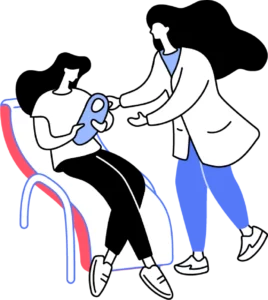Over a fifth of households questioned by Statistics Canada indicated difficulty covering the cost of everyday necessities and unexpected expenses.
This post provides an intriguing perspective on how things can still go wrong even when you follow the proper steps. We’ll begin by explaining what a financial emergency means and how it could affect your financial security.
What Is an Unexpected Expense?
Unexpected expenses can occur without warning, putting strain on even the most well-prepared budget. Unexpected expenses can come in many forms, from car repairs to medical bills, and disrupt your daily life.
We don’t want to dwell too much on worst-case scenarios. But being prepared for anything from natural disasters to financial hardships is essential. So let’s investigate how these events can come to pass.
How Do Unexpected Expenses Occur?
You and your partner are in a great place financially at the start of the relationship. Congratulations! You have steady employment, regularly set money aside, and consistently meet your payment deadlines. You even have a reliable plan in place for any potential surprise costs.
However, three unexpected expenses rock your finances.
Before the wedding, a costly dental emergency occurred for your partner. After that, money was spent on taking care of your new baby. Lastly, huge bills from the vet were incurred due to your beloved pet, Lucy (a beautiful Silver Weimaraner), needing medical attention.
The First Unexpected Expense

You returned to Canada to be closer to family and start a new chapter with marriage. Unfortunately, you and your fiancée were not expecting one of you to face a significant dental issue right before the big day.
You had hoped to save money by not getting additional insurance. However, the procedure cost was around $3,000.00, which must be paid from your pocket. Before your marriage, there was an amount of $20,000.00 that had been set aside for security. This amount decreased to $17,000.00.
Setting up Emergency Funding
Choosing the proper savings account is essential for creating an emergency fund. This fund should be easily accessible in case of a financial emergency.
When setting up your savings accounts, keeping your emergency fund separate from your regular savings account is important to prevent confusion. Having different accounts is vital. And we do not recommend using a chequing account.
Create an emergency fund. This fund should be easily accessible in case of a financial emergency.
Creditpicks
Finding an emergency savings account that does not come with high costs is important. You should seek out an account that allows withdrawals without any extra fees. The account should not have a minimum balance requirement and allow quick withdrawals when you need money.
Ensure you earn interest on your saved money. Investigate the features of different banking accounts. Be sure you have the right one to help you build and keep your emergency fund.
The Second Unexpected Expense
Some unexpected financial challenges accompanied the arrival of a new baby due to health concerns. Fortunately, the infant was born healthy, but the costs were still considerable.
To maintain your employment, you and your partner had to find a more comprehensive form of childcare for your infant. So you employed a nurse. Additionally, you had to acquire additional items for your residence.
No matter the cost, your child’s well-being is your priority. Even if it means dipping into your savings for $8,000.00. Your emergency fund is now worth only $9,000.00.
Managing Financial Risk
It is essential to be aware of the different types of insurance available and to determine the amount of coverage required. This could include health, dental, vision, life, travel, and car insurance.
Remember that certain kinds of insurance can be expensive and unnecessary. Consulting with a professional insurance agent can help you decide what coverage is right for you.
Be mindful of any additional charges. Compare prices to make sure you are receiving value for your money. Before you purchase insurance, evaluate the coverage you already have access to. This coverage may be available through your employer, a private provider, or the government.
And, Another One
After five years, you still have not been able to build back up your savings. Unfortunately, emergencies can happen anytime, and you may not be financially prepared.
Over time, you and your partner wished to expand your household. However, your financial situation did not permit it.
As a result of your decision, you welcomed a furry friend into your household instead of having another baby. But unfortunately, Lucy (the Silver Weimaraner) had an expensive health issue. To take care of it, and it was likely to deplete your savings.
The situation required a loan to pay for the expenses and, hopefully, preserve some of your savings. This quick cash will cost you.
How to Prepare for Unexpected Expenses
Access to funds quickly in an emergency is critical. So keeping your money in a separate savings account from your other accounts is wise.
The kind of bank account you select depends on your objectives, age, income, and spending.
We recommend a financial cushion to sustain your living costs for three to six months. Depending on individual circumstances, the amount of money that should be saved can vary.
Resources for Covering Unexpected Expenses
Investigate whether someone else (e.g., your insurer) can cover some or all of your unexpected expenses. You may have a service agreement, warranty, or insurance that can cover any unexpected costs.
When you purchase an item using a credit card, you may be eligible for certain safeguards if an issue arises. Additionally, there may be coverage for some or all of your unexpected costs.
It is crucial to consider each option’s pros and cons before deciding.
Reconsider Your Spending
You should look for ways you could cut back on your spending. Evaluating your spending allows you to put money aside for any unexpected expenses. By doing this, you may even be able to start rebuilding your savings.
It may be possible to borrow money from close relations. However, failing to honour the repayment agreement could cause tension between you and that person.
A short-term, part-time job may help to pay for unexpected expenses. You can also use this money to build up your savings.
You can make some extra money by getting rid of unnecessary or unwanted items. Doing this can also help you tidy up your house. Advertising in classifieds, such as Kijiji, or hosting a yard sale is a great way to do this.
Emergency Loans for Unexpected Expenses
Finding out if you qualify for an emergency loan in Canada is usually quick. The required funds could be available in your bank account within one day. However, the loan must be paid back monthly with an added fee.
This type of loan should only be used in the case of an actual emergency. It is a short-term loan with a high-interest rate that must be paid back swiftly. These loans are usually called cash advances or payday loans.
Break in Case of Emergency

The Pension Benefits Standards Act outlines four types of financial hardship for which funds from a Life Income Fund (LIF) or a Locked-in Retirement Account (LIRA) may be accessed. These difficulties are:
- Arrears of rent on a principal residence
- First and last months’ rent
- Low expected income
- Medical expenses
You can use any, or a mix, of these reasons to unlock access to fast cash. But remember, these options are taxable income. And you may be affecting your long-term retirement income.
What Unexpected Expenses Can Teach You
Many Canadians are finding themselves in situations where money is tight. But they are still prioritizing staying within their financial limits and setting aside funds for the future. You must have clear savings goals.
Expenses that you did not account for can put a strain on your financial situation. Unexpected events can happen, even when you feel your life is under control.
It was a wise decision to start saving money. But you strayed from your financial plan by no longer increasing your savings when it reached $20,000.00.
Financial experts generally advise having a financial cushion equal to 3-6 months’ worth of household expenses in an emergency. Having less than this can leave you unprepared for unforeseen costs.
Prepare for Tomorrow, Today
This story was meant to inform you of the risks of unexpected expenses. We also wanted to demonstrate the value of setting aside funds for unforeseen occurrences.
If you find yourself in a challenging financial situation, taking measures to maintain your credit score is beneficial. Creditpicks provides advice on how to restore your credit. Be sure to check out the post!




